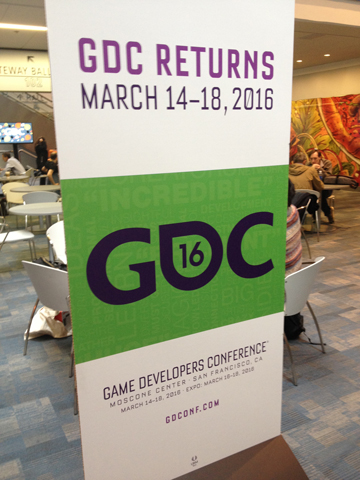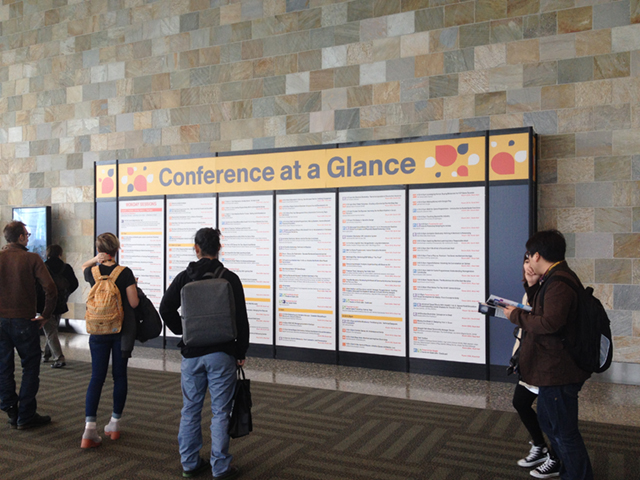Game Developers Conference is my favorite convention. When I say this I don't just mean that it's my favorite gaming convention; it's my favorite convention of any industry I've been to.
The laziest advantage of GDC for me, and the most obvious and stupid reason to love it, is that it's located relatively near where I live and about two blocks from my former day job in San Francisco. Getting there has always been monumentally easy, and even before I began writing about games, I had friends working in the industry who attended the con. While the issue of proximity doesn't ultimately count for much, it's one of the many reasons I love it.

My favorite thing about GDC are the actual talks, and as far as I can tell, they are the best place—outside game development itself—to learn how it actually works. There is a perception, in our cult-of-personality idea of media development, that games are constructed from the top-down by big-name designers whose design documents are the equivalent of sanctified stone tablets inscribed with laws from which there can be no deviation. While this may actually be true in some very limited cases, what becomes clear relatively quick from listening to these talks is that game design is far more collaborative than any other creative medium out there.
The story that emerges from talks by programmers, designers, animators, art directors, producers, and writers, is that as they keep trying things, everything changes, and everyone's contributions mesh in a way that is unlike any other medium—as hard work and happy accidents mix together in a soup that eventually becomes a game. The flexibility of game developers to be able to incorporate those changes that make the game better iis probably the greatest unsung skill that everyone working in games seems to know about, but no one seems to ever fully acknowledge. Unless, you're at GDC, that is.
I also love GDC because there are times when, since they are mainly addressing other developers, speakers are shockingly honest. Last year at Sony's Project Morpheus reveal, we all knew we were going to a talk where there would be a reveal of the new tech, but we had no idea how it was going to be presented. I also expected a 45-minute list of Sony's technological achievements going back through its storied past, and about five minutes of actual information. Instead Shuhei Yoshida came out and showcased the tech, asking developers to make games for it. It was the opposite of the general PR-approved reveal.
This honesty is a rare commodity in circles where developers and press cohabit. In most game preview situations, the hardware or games the press is shown is carefully managed with PR and marketing people on-hand to keep the developers in line. GDC, however, often houses games in various states of completion, with less polished showings where we can see the games as they develop.

Last year I attended a narrative talk by one of the writers of Far Cry 3, whose talk was fairly self-congratulatory about how he was able to subvert the player's expectations to force them to examine their own morality in play choices. His talk was followed immediately by another speaker, who had a section specifically about what he felt was the abject failure of Far Cry 3's story to achieve those same goals. The process, and its conclusions, can be messy in retrospect, especially when viewed from both inside and outside the development process.
GDC displays that in all its glory. For a week, a lot of the sheen and carefully pulled quotes fall away, leaving just people comparing notes on how they build their games and sharing information so all games can be better made. That's quite amazing, and is why I look forward to coming back every year.







